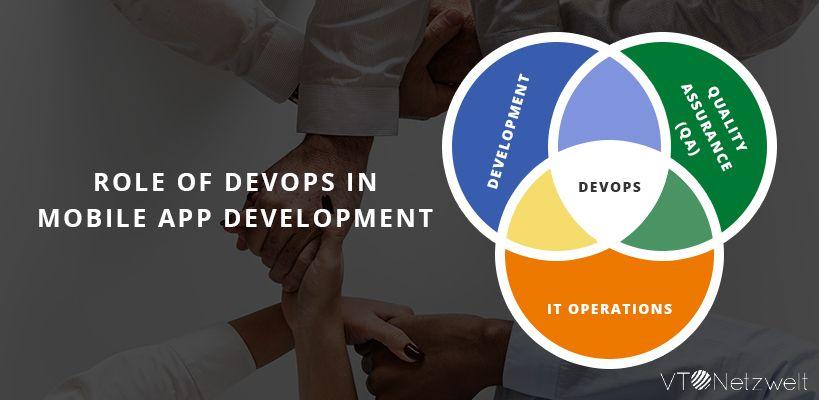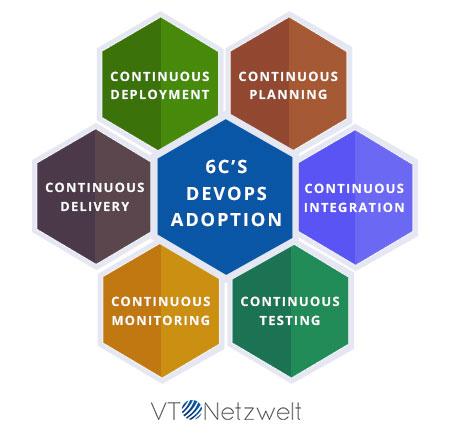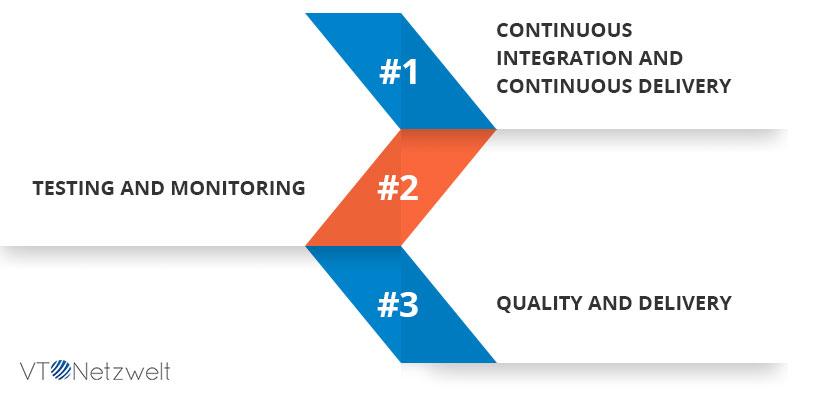Role of DevOps in Mobile App Development - Mobile DevOps
Bài đăng này đã không được cập nhật trong 6 năm
 Over the past 5 years, mobile devices have become the primary sources of accessing the internet for millions of people around the globe. These trends have scrambled many industries to adapt a shift in business application users by developing a mobile app for their business application.
Over the past 5 years, mobile devices have become the primary sources of accessing the internet for millions of people around the globe. These trends have scrambled many industries to adapt a shift in business application users by developing a mobile app for their business application.
During the early years of this shift, IT industry focused on meeting the market demand and businesses focused on creating a market presence but they overlooked to focus on app development costs, security, maintainability, code quality etc.
Presently as the underlying surge has settled down, it’s a great opportunity to center around these issues and embrace new methodologies in the advancement procedure to lessen cost and increment quality.
In this blog, we will be discussing the DevOps approach in Mobile App Development, challenges, and best practices to implement DevOps.
What is DevOps?
DevOps is a modern software engineering approach which focuses on effective collaboration between project managers, developers, operations staff while aligning with enterprise business objectives.
The conventional techniques utilized before DevOps approach lacked powerful coordinated effort between various departments of Software Development which eventually lead to additional time in development, more holes in customer pocket, and results in customer dissatisfaction.
Benefits of Adopting DevOps
DevOps has brought the development and operations team on the same page. Before DevOps, developers used to write the complete code and then convey it to the operations team. With DevOps process, responsibilities are distributed equally among different teams with a single goal that each team has a clear visibility of application performance.
Adopting DevOps in your Enterprise offers –
- Continuous Software Delivery
- Enhanced Customer Experience
- Faster Resolution of Bug Fixes/Problems
- Higher Employee Engagement
- Faster Delivery of the Product
- More Stable Environment for Easy Deployments
- More Time for Innovation
- Increased Efficiency
6C's of DevOps Adoption

-
Continuous Planning Continuous Planning refers to bringing your entire team like the developers, business analyst, testers, and operations team on the common platform to determine the capabilities of the application in the preparation of a release plan.
-
Continuous Integration Continuous Integration (CI) address the developers community by focusing on error-free builds following the best practices and standards of the version control.
-
Continuous Testing Testing is an important part of Software Development Lifecycle. Testing ensures the quality of the product delivered to the customer. Continuous Testing in DevOps emphasis on automation of all the phases of Software Testing.
-
Continuous Monitoring Continuous Monitoring ensures that the application is performing as desired and the production environment is kept stable no matter the frequency of changes without any human interaction.
-
Continuous Delivery Continuous Delivery is the practice that ensures that the code is deployed to the production environment by delivering every change to a production like an environment.
-
Continuous Deployment Next step of Continuous Delivery is Continuous Deployment. Every change that passes the automated tests through Continuous Testing is deployed to the production environment automatically.
Mobile DevOps
Adopting DevOps in Mobile App Development can be a game changer for many organizations. DevOps ensures that all different teams become more productive in terms of execution.
However, adopting DevOps is not an easy process as it requires a lot of technical and business decisions but once implemented successfully by experienced DevOps engineers, the new process can add value to the organization in terms of employee satisfaction with better engagement between different departments and teams, resulting in increased revenue.
To adapt continuous mobile DevOps workflow, all the bottlenecks and potential problems need to be identified at first.
Challenges in Adopting DevOps For Mobile App Development
While the basic principles of adopting DevOps for web apps and mobile apps are the same, still there are certain challenges for adopting DevOps in mobile app development. These challenges include –
-
Multi-Platform Support Mobile applications have multiple target environment. Most of the mobile apps target multiple devices, OS versions, hardware specifications and more.
-
Apple App Store and Google Play Store Generally, a mobile app cannot be deployed directly to a mobile device. It has to go through App Store for iOS and Google Play Store for Android. The app goes through a submission and review process of the app store.
-
Pull Deployment Model Traditional deployments operate on a push model where a new version of the application can be pushed whether it is a web app or a server based app. However, the process of updating a mobile app is a pull process as it is up to the user to choose whether or not he/she wants to update the app.
-
Mobile App Testing Nothing is worse than a 1-star rating for your mobile app. Unsatisfied customers can publically harm your brand through the medium of the app store or play store. So it becomes extremely important for you to do rigorous testing using functional, usability, and performance testing techniques for your app.
How to Adopt Mobile DevOps?
Adopting Mobile DevOps in your organization requires 3 thumb rules which need to be followed –

Rule #1 – Continuous Integration and Continuous Delivery
- The mobile app development team must ensure the traceability of all the development assets including code, configurations, scripts, documents, text files etc. Continuous Integration must be practiced which ensures that the code delivered by one team works with the code delivered by the other team. Frequent builds must be done and new code must be integrated with the code previously developed.
Continue Reading the Full Article at my website - VT Netzwelt
All rights reserved